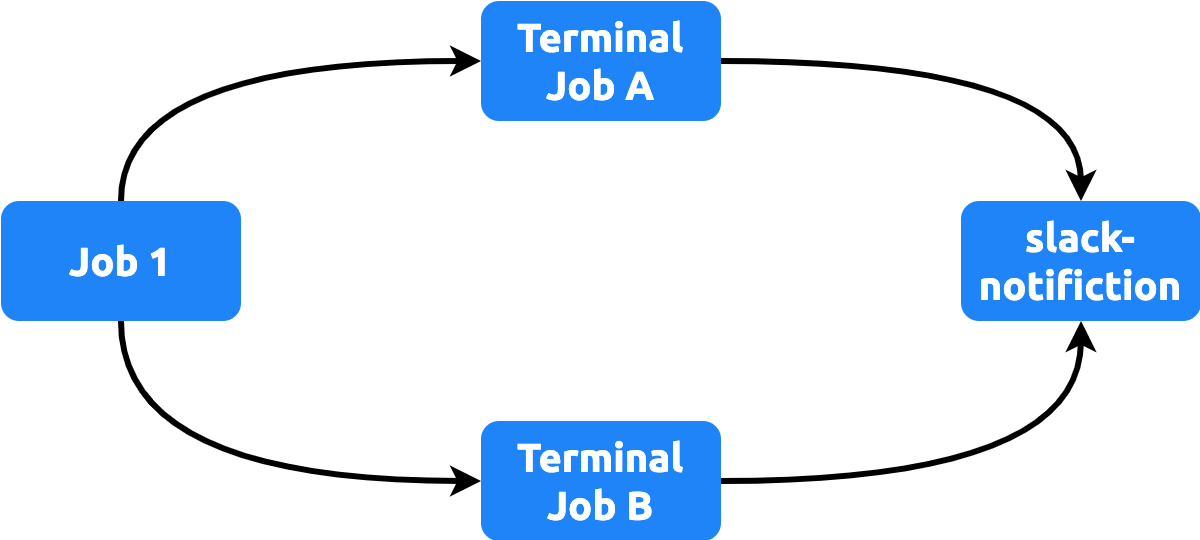Sending data into Slack using slack-send.
slack-send
This post discusses practical guide for sending data to Slack via a Slack Incoming Webhook URL. The reason we prefer webhook approach is to preserve the privacy of team member. The chatbot invite approach potentially allow all Slack member to touch a private app of an individual
-
Follow the setup
-
Add
slack-notificationjob and a trigger in the last CI/CD job:---
name: My CI/CD
jobs:
the-last-job:
name: The last CI/CD job in workflow
outputs:
outcome: ${{ job.status }}
continue-on-error: true
runs-on: ubuntu-latest
steps:
...
slack-notification:
name: Send Slack Notification
if: ${{ always() }}
needs: the-last-job
uses: QubitPi/hashicorp-aws/.github/workflows/slack-notification.yml@master
with:
job-status: ${{ needs.the-last-job.outputs.outcome }}
secrets:
slack-webhook-url: ${{ secrets.SLACK_WEBHOOK_URL }}infoNote the key block in
the-last-job:outputs:
outcome: ${{ job.status }}
continue-on-error: true
Multi-Terminal-Job Configuration
The config above applies to the case with a single last job. We call this job "terminal job". The configuration becomes a little different when there are multiple terminal jobs such as the one workflow in the figure below:

In this case we change the job-status input of slack-notification:
---
name: My CI/CD
jobs:
terminal-job-a:
name: Terminal Job A
outputs:
outcome: ${{ job.status }}
continue-on-error: true
runs-on: ubuntu-latest
steps:
...
terminal-job-b:
name: Terminal Job B
outputs:
outcome: ${{ job.status }}
continue-on-error: true
runs-on: ubuntu-latest
steps:
...
slack-notification:
name: Send Slack Notification
if: ${{ always() }}
needs: [terminal-job-a, terminal-job-b]
uses: QubitPi/hashicorp-aws/.github/workflows/slack-notification.yml@master
with:
job-status: ${{ (needs.terminal-job-a.outputs.outcome == 'success' && needs.terminal-job-b.outputs.outcome == 'success') && 'success' || 'failure' }}
secrets:
slack-webhook-url: ${{ secrets.SLACK_WEBHOOK_URL }}
Note we are using the ternary expression in GitHub Actions for the value of job-status above.
slack-send v.s. Github Slack Integration
Github Slack Integration offers "on-click" experience with almost no configurations like the one above. In addition, it sends notification on GitHub issues open/close, pull requests, GitHub Action workflow status, etc. The easier setup and richer notifications makes Github Slack Integration a better choice for team-collaboration managing multiple repositories with a common communication standards
slack-send, on the other hands, supports sending any information about GitHub Action workflow, not just status. It also supports custom messages; we can inject emoji or custom pictures in the notification messges, which is a big plus for those who love personal customizations and focuses on only success-or-fail of each GitHub action run.
With slack-send we also do not need to run /invite @GitHub so our channel is completely private.